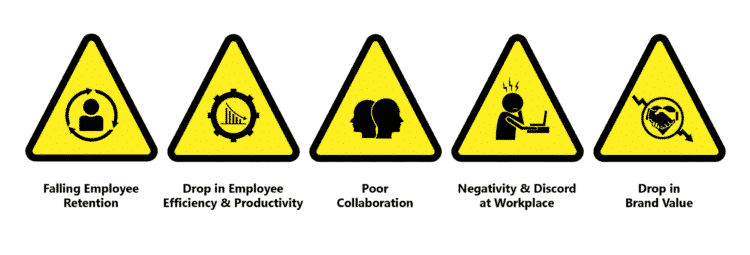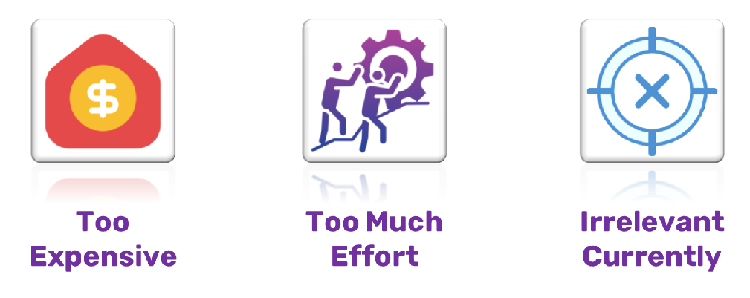1. The absence of an employee recognition program can significantly harm an organization, leading to decreased employee retention, productivity, and collaboration.
2. Employees who feel undervalued due to a lack of recognition may experience negativity and discord in the workplace.
3. This can also tarnish the organization’s employer brand, making it more challenging to attract and retain top talent.
4. Common misconceptions, such as the belief that these programs are too expensive or irrelevant, often hinder organizations from implementing effective recognition strategies despite their proven benefits.
Most organizations look to reward and recognize employees to boost their motivation and commitment. However, can the lack of an employee recognition program hurt an organization?
A study by Workhuman Institute (erstwhile Globoforce) found that despite understanding the importance of employee recognition, only 14% of organizations provide their employees with the necessary tools for the same.

In a survey conducted by Psychometric, when the participants were asked what leaders could do more to improve engagement, 58% of respondents replied: “give recognition”.

Regarding employee engagement strategies, rewards and recognition are among the most effective. Here’s why:
1. Timely rewards and recognition help improve employees’ engagement, motivation, and commitment, driving workforce productivity and efficiency.
2. It gives employees a sense of belonging and purpose, strengthening their commitment and loyalty to the organization.
3. A good rewards policy impacts the workplace culture, promoting better cooperation and coordination among workforce members.
Despite the growing significance of rewarding and recognizing employees, many organizations still lack such programs.
Such organizations may lose the dedication and loyalty of their employees and can even see lower growth.
The most significant disadvantages for organizations lacking a good rewards program are as follows:
1. Falling Employee Retention
2. Drop in Employee Efficiency and Productivity
3. Poor Collaboration among Employees
4. Negativity and Discord at the Workplace
5. Drop in the Employer Brand Value


The increasing competition in the job market has already made attracting and retaining talented professionals quite challenging for organizations.
The lack of an appropriate recognition policy makes things even more difficult for an organization.
Best-performing employees often want their employers to acknowledge their achievements and appreciate their contribution to business growth.
Hence, failing to fulfill this basic human need can make it difficult for organizations to retain top talent.

When organizations fail to recognize their employees, they make them feel undervalued.
They start developing doubts about their performance, which can impact their self-confidence and future performance.
Consequently, this can impact overall productivity and business growth.
Such employees may be less committed to meeting project deadlines or ensuring the quality of deliverables.

Employee recognition also plays a vital role in fostering better coordination and cooperation among the workforce.
If organizations appreciate their employees’ excellent work and achievements, they are more likely to help and support their colleagues.
However, when employees are not recognized for their efforts, they tend to become more withdrawn and uncooperative with others.
Moreover, their reluctance to complete their work on time or to address performance issues also leads to poor workplace coordination.

In many cases, employees who are denied recognition vent their frustration in different ways.
Employees of such organizations might have frequent altercations with their co-workers, or might even indulge in badmouthing the organization.
Hence, this can lead to low trust levels and poor social interaction at the workplace, which, in turn, impacts productivity.

Also, an organization’s employer brand value helps prospective candidates decide whether to join the organization.
Organizations without an effective rewards program tend to be perceived by prospective candidates to have lower employer brand value.
The lack of an employee recognition program may be a reason for the organization’s inability to hire top talent.
Several reasons might prevent organizations from investing in a good employee rewards program.
In most cases, these reasons manifest themselves in the form of various misconceptions that organizations tend to have.
So, here are a few of the most common misconceptions that prevent organizations from utilizing the benefits of a well-developed and adequately implemented employee rewards and recognition program:


Organizations often believe that rewards programs are quite expensive and can cause a major dent in business profitability.
However, this is incorrect, as organizations can design effective employee rewards and recognition programs with limited resources and budgets.

Another common misconception is that reward programs are extremely time-consuming.
It is not entirely accurate to say that setting up a good rewards program requires a considerable investment of time and effort.
Once the organization sets up a properly designed program, it is easy to execute without incurring significant administrative and management overhead.

Many organizations feel that employee recognition programs have lost their relevance during this current economic downturn.
However, recognizing employees is more critical than ever in the present situation.
Additionally, organizations need to adopt new recognition methodologies to appreciate and acknowledge the efforts of their remote workers.
The lack of an employee recognition program can hurt an organization as it is one of the key HR strategies for motivating and engaging employees.
Hence, organizations should implement robust employee recognition programs to meet the needs and expectations of their workforce.

Lead author: Sagar Chaudhuri, the Co-Founder and CEO of HiFives. He is an HR Tech Evangelist with over 25 years of experience in both corporate and entrepreneurial settings. Previously, Sagar has held leadership roles with companies such as Genpact, Infosys, and ICICI Bank. He has an engineering degree from IIT Kharagpur and an MBA from IIM Lucknow. Connect on LinkedIn
To stay updated on the latest HiFives blogs, follow us on Twitter (@MyHiFives)